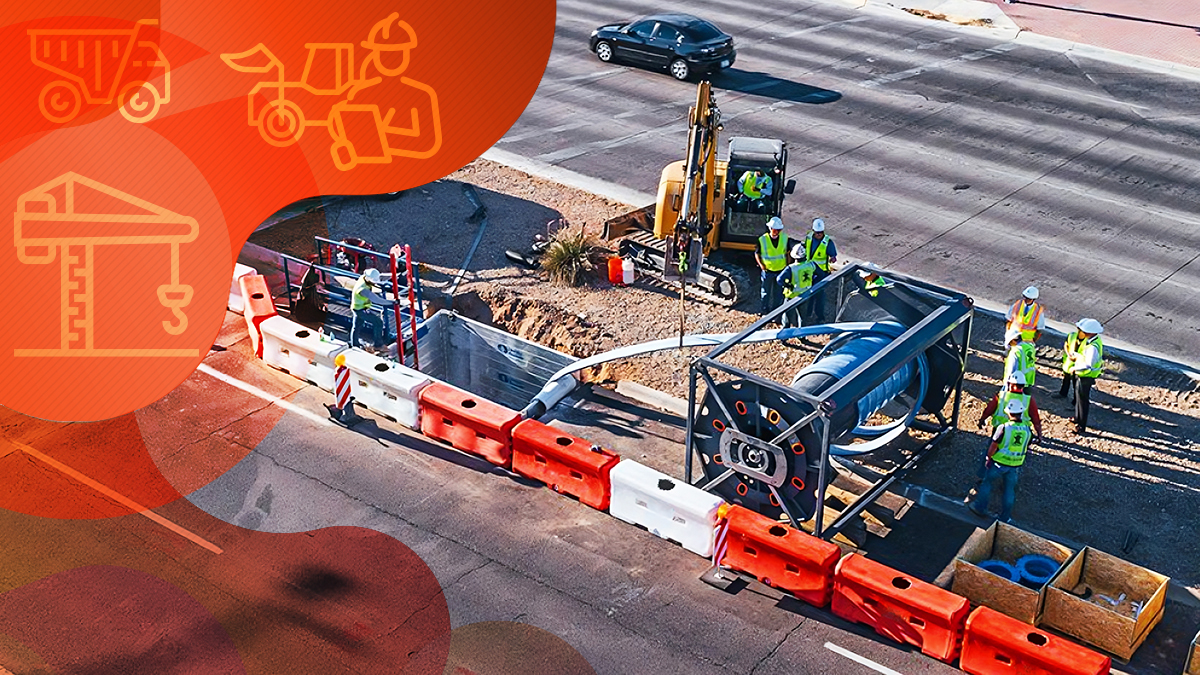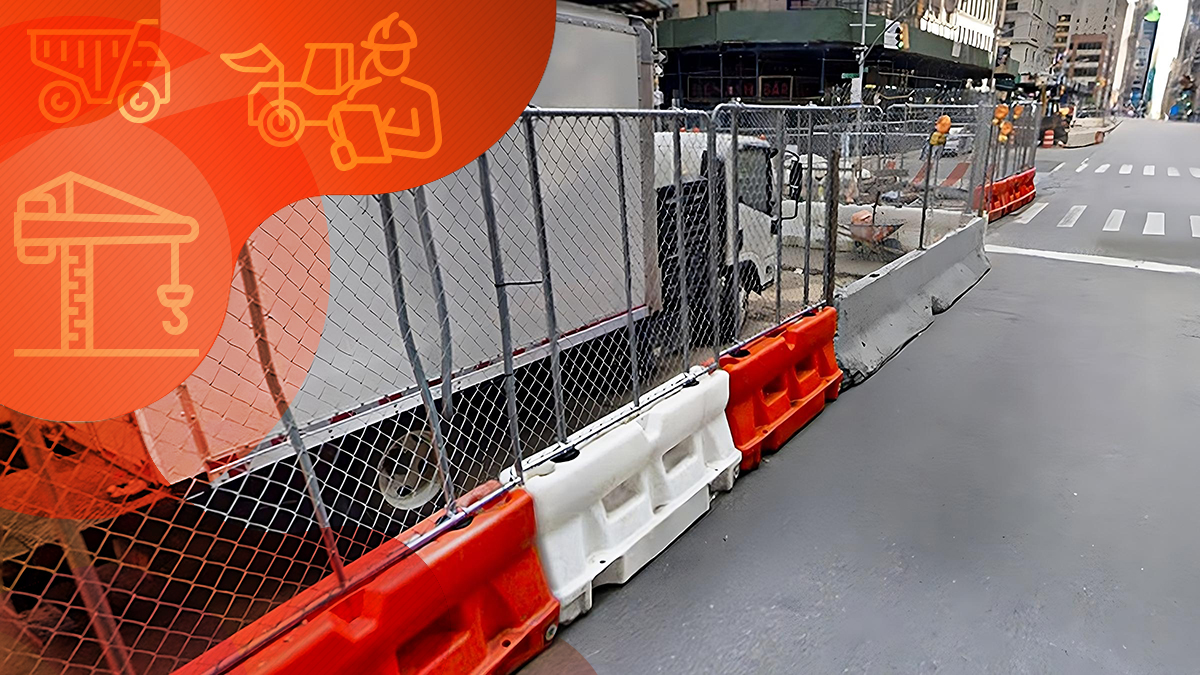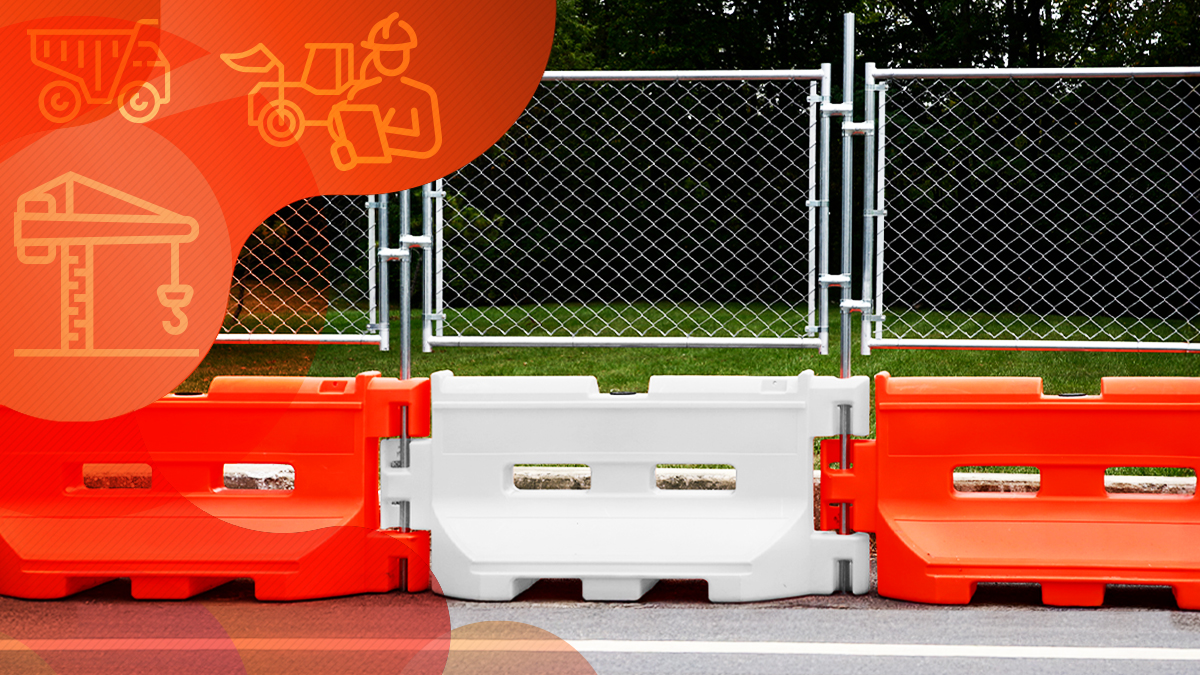How To Start A Temp Fence Rental Company
Ready to launch your own temporary fence rental business? Discover expert tips on products, pricing, and marketing strategies to get started. Learn how to navigate legalities, create a solid business plan, and ensure a fast return on investment!

Starting a Temp Fence Rental business can be a lucrative venture for Site Service companies and Fence Contractors looking to expand their portfolio and increase revenue streams. By integrating Temp Fence solutions into your offerings, you can meet the growing demand for Perimeter Security and Crowd Control for Construction Sites and large Events.
If you are starting a Rental Company from scratch, we recommend working with resources like your local Chamber of Commerce or the Small Business Administration (SBA) for any necessary steps for setting up your business legally. If you already have a business up and running, it’s time to focus on maximizing your offerings so you can increase your revenue.
This guide is here to help both experienced rental pros and beginners start their own successful Fence Rental business.
Why You Should Start a Rental Division
The fence rental market is rapidly growing, with experts predicting steady growth in the United States from $3,294.6 billion in 2022 to $4,676.9 billion by 2033.
This growth in the Fence Rental market is directly related to predicted growth in the Construction industry, as jobsites are the main consumers of Fence Rental services.
Often, companies end up choosing fence providers located far from the jobsite due to a lack of rental suppliers that can provide the required number of panels for the entire duration of a project.
This means there are many opportunities for those just getting started. And if you already rent other products to construction sites, like porta-potties or dumpsters, expanding your business to include Temporary Fences can be highly beneficial.
Not renting fences is a missed business opportunity, as they are a legal requirement for all major jobsites. Construction cannot begin unless the perimeter is properly enclosed.
For companies already working with jobsites—whether by renting out other equipment or providing fixed fences once construction reaches a certain stage—many already own most of the equipment needed to start offering Temporary Fences. The entry barrier is relatively low.
The next step is taking action to capitalize on this opportunity and avoid continued revenue loss from missing out on this growing market.
Purchase Inventory, Equipment, and Supplies
To get started with your new rental division you will need to purchase some inventory, equipment, and supplies. Make sure that you are choosing the best possible products that have the price point you can afford. Don’t always opt for the cheapest price because you may not get the quality you need.
The last thing you want is product failure. It will cause you to lose customers, you will have to replace the shoddy materials, and if there is property damage or injury associated with the product failure, it can destroy your business.
These issues can be very costly. It is best to avoid them from the beginning.
For those just getting into Fence Rentals, industry experts recommend selecting chain-link panels over welded panels. Chain-link panels offer great strength and durability, allowing for multiple reuses over extended periods and in harsh environments. However, if you're primarily considering short-term rentals, welded wire panels could also be a viable option.
You want fencing that is going to stand up to whatever your customers need, whether they need Crowd Control for an event at the farmer’s market or construction fence to increase the security of a worksite.
In addition to the fence panels, you will need all the hardware to properly set them up, fence feet, and fence gates.
You'll need a suitable vehicle like a flatbed, stake-body truck, or trailer for transporting them —something a fence contractor or site service business may already have. To optimize storage space and secure panel stacking during transportation, consider investing in a steel Sollage rack.
As your business expands, acquiring equipment like a forklift can greatly expedite unloading and installation processes. This efficiency enables your team to cover more locations in a single day, enhancing overall productivity.


Return on Investment for Your First Temp Fence Purchase
When starting a fence rental business, understanding the return on investment (ROI) for your first fence purchase is important. ROI can vary based on factors like spending, market conditions, and customer demand.
However, many high-volume fence companies find temporary fencing to be a cost-effective investment with a fast payback. Let's break down an example to illustrate:
- Chain-link Fence Panel Starter Kit: $129
- Average Rental Revenue: $3 - $5 per linear foot, or $30 - $50 per panel
Your initial investment in a SONCO Temp Fence kit, which includes fence panels, feet, and clamps, can be fully recouped with just 10 rental cycles. From there, it's all profit. By acquiring quality products designed to last through many cycles, long-term profitability is guaranteed.
Keep in mind that actual revenue can vary depending on factors such as your specific market, project types, and customer base. Learn how to properly price your services and get the best return on your investment by reading our pricing guide!
Maximize Your ROI by Joining the SONCO Club
To make sure you're getting the most out of your investment, consider joining the SONCO Club.
A SONCO Club membership offers some amazing benefits that will carry your business from startup to growth and beyond. When you join you get:
- Coupon codes;
- Rebates;
- Exclusive access to a lead sharing program;
- In-depth community insights.
Joining the SONCO Club is quick and easy, but best of all, it’s FREE. When you become a member, we'll connect you with experienced professionals in the field who will assist you in choosing the right inventory for your rental business. They'll help you make informed decisions, so that you invest wisely and set your business up for success from the start.
Once you join the SONCO Club, you can lock in pricing and deals with a sales rep. This way, you can secure your inventory at the agreed price, then wait for your customer’s deposit before finalizing the purchase. With expedited delivery available anywhere in the U.S., this approach allows you to conserve initial funds, giving you the flexibility to invest in other areas of your business, such as additional products that can help you generate even more income.
Additional Revenue Add-Ons
While you can run a successful Temporary Fence Rental business with just the basic fence panels, offering additional products can significantly increase your revenue. Having a range of complementary items can make your business a one-stop shop for all Temp Fence needs. Here are some popular add-ons to consider:
- Privacy Screens: These screens are often used on construction sites, outdoor events, and any location requiring privacy or wind protection.
- Fence Gates: Gates are a necessity for construction sites, events, and any other fenced locations that require entry and exit points.
- Fence Base Weights: In windy conditions or when the ground is uneven, fence panels are prone to falling, so by using Fence base weights you can mitigate that.
- Fence Braces: Fence braces offer additional stability for temporary fencing. These are particularly useful in situations where the fence line is long or exposed to strong winds.
By integrating these additional products into your rental offerings, you can not only increase your revenue but also improve customer satisfaction.
Providing a variety of complementary items makes your business a more attractive option for customers seeking complete solutions for their temporary fencing needs.
To facilitate your customers finding out about your new rental division and all the new products in your portfolio, you will need to create a marketing strategy, highlighting your full range of services.
Creating a Marketing Strategy for Rental Companies
Once you have your business ready to go, you need to get the word out. It starts with an online presence, but it can be simple with just the relevant information about your business.
You can start small and gradually build it, updating it regularly.
From there, you can begin developing a marketing strategy that is designed to speak to your target audience.
Choose several channels, again keeping in mind your target audience. Having a social media presence is a great way to promote your new business.
When you partner with SONCO, you gain access to marketing materials, product details, and high-quality photos to help you showcase your services online and attract more customers.
For more guidance, we’ve put together a detailed guide covering how to define your ideal customer, generate leads, and take advantage of our lead-sharing program to grow your business. Download it for free right now!
Creating Rental Agreements and Contracts
As your marketing strategy starts attracting customers, you’ll quickly realize the importance of having solid contracts in place. Rental agreements are essential for setting clear terms, managing risks, and guaranteeing smooth transactions with your customer.
A well-structured contract will help you define expectations, payment terms, delivery schedules, and more. This is important to maintain strong, professional relationships as your business grows.
To streamline your rental agreements and avoid common pitfalls, download our Contract Management Guide. This resource provides expert insights on creating professional rental contracts that protect your business and ensure smooth transactions.


Partner with SONCO to Grow Your Temp Fence Rental Business
With over 45 years of experience in the fence industry, SONCO isn’t just a supplier—we’re a trusted partner dedicated to helping rental companies thrive.
By choosing SONCO, you gain access to expert advice, competitive pricing, and flexible credit terms that make scaling your rental division simpler and more efficient. Our commitment doesn’t stop at providing durable, reusable Temp Fence products designed for long-term use; we also help generate leads to connect you with more customers, ensuring your investment pays off through multiple rental cycles.
As your marketing efforts bring in more customers, having a solid foundation in logistics and contract management becomes fundamental. That’s why our comprehensive Fence Rental Guide goes beyond the basics. It’s packed with insights on drafting effective rental agreements, managing inventory, writing better quotes, exploring additional product offerings, and even professional installation techniques.
In essence, the guide covers from contracts and logistics to operational best practices, Setting up every aspect of your rental business for success. Click here to access your guide and take the first step toward expanding your business today!


Trend now

Reducing Impact Damage with Water-Filled Plastic Jersey Barriers
Understanding the effects of barrier materials on vehicles and their occupants can help improve road safety.

Choosing Between Concrete or Plastic Jersey Barriers
Not all barriers are built the same. Here’s what to know before choosing between plastic and concrete.

Advantages of Water Barriers with Fence Toppers
Learn how a fence topper transforms water barriers into a more secure, private, and effective work site solution.

